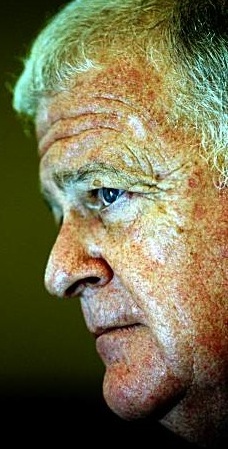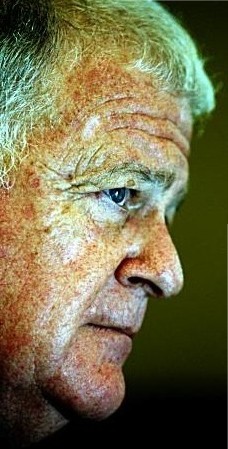By Kelly Rayburn and Josh Richman
Originally published in the Oakland Tribune
Posted: 01/11/2010 07:58:28 PM PST
A ballot-measure committee headed by former state Senate President Pro Tem Don Perata paid $25,000 to Oakland City Councilmember Ignacio De La Fuente in August to do outreach to labor and ethnic groups and fundraising for a proposed cigarette-tax initiative, records show.
The payment raised eyebrows in some circles, including among those who pushed for city's recent switch to an instant-runoff voting (IRV) system. But both Perata, a 2010 mayoral candidate, and De La Fuente, said the money was solely for work De La Fuente, a labor activist, will do for the ballot measure — and nothing more.
"I'm an organizer by nature," De La Fuente said. "I will talk to people and organize people to support the measure. That's what I have done and what I will continue to do."
Perata and De La Fuente are longtime political allies, and Metropolitan Greater Oakland Democratic Club President Judy Cox said when she and other IRV advocates learned of the $25,000 payment last fall when Perata and De La Fuente were battling the new voting system, it piqued their interest.
"We thought that De La Fuente might be assisting Perata with some of his efforts against IRV," Cox said.
In the fall, Perata referred to IRV as an "experimental voting system" and his mayoral campaign has also cited the city's strapped resources in saying it was the wrong time to make the switch.
De La Fuente scoffed at the idea the payment had to do with Perata's mayoral campaign or with his opposition to IRV, which De La Fuente said he has always opposed and now decries as a waste of money as the city struggles with massive budget deficits. "I'm getting paid to do a job, and I'll do it," De La Fuente said of the $25,000, which amounts to about 40 percent of his City Council salary. "Normally who do you hire when you want to do something? When you need to hire some people to get something done, who should you hire — your enemies or your allies? It makes sense to me."
De La Fuente said he was tasked with contacting 10 labor groups for petition signatures and 10 business groups for campaign contributions in the Sacramento and Oakland areas. Asked who the groups were, he replied, "You'll find out when you see who's supporting the measure."
De La Fuente is a vice president with the Glass, Molders, Pottery, Plastics and Allied Workers International Union.
Perata called De La Fuente "a hell of an organizer" and a "very well-respected labor leader in the state."
"It was a no-brainer," Perata said.
He said he's not worried about what people think about the $25,000 consulting deal. "After the five years that I've been through, no. That never entered into my mind. What I was primarily concerned about was getting to labor early and getting their attention."
Perata was the target of a years-long FBI corruption investigation involving his financial ties with relatives and associates. Federal prosecutors last year announced no charges would be filed, but Perata raised and spent millions for a legal-defense fund to shield himself.
The California Cancer Research Act — backed by Perata's Hope 2010 and the Californians for a Cure committee — would raise the state's cigarette tax by $1 per pack to fund cancer research; support smoking cessation and tobacco-use prevention programs; build cancer research facilities; and fund anti-tobacco and anti-smuggling enforcement.
The Hope 2010 committee did give $150,000 in November to Californians for a Cure, which is sponsored by the American Cancer Society, American Heart Association and American Lung Association — but that's still less than 13 percent of the almost $1.19 million Hope 2010 amassed last year.
Hope 2010 has spent far more on lawyers and campaign consultants such as De La Fuente and former aides and perennial Perata consultants Jason Kinney, Chris Lehman and Sandra Polka. It also paid $5,000 in August to a firm run by Perata's son, Nick — the latest in many years' worth of payments from his campaign committees to his children's businesses.
California Fair Political Practices Commission Executive Director Roman Porter won't comment on specific situations but said "the general rule under the Political Reform Act is that campaign expenditures must be reasonably related to political, legislative or governmental purposes."
"There isn't, that I'm aware of, any statute that puts a limit on that or talks about extravagance or excess," he said. "You're not allowed to pay yourself out of your own ballot measure committee campaign fund "... but there's nothing in the law that would prohibit an elected official from serving as a paid consultant for another committee."
City Attorney John Russo said there's nothing in the city's charter that bars a council member from working as a consultant on behalf of a ballot measure.
Return to top



